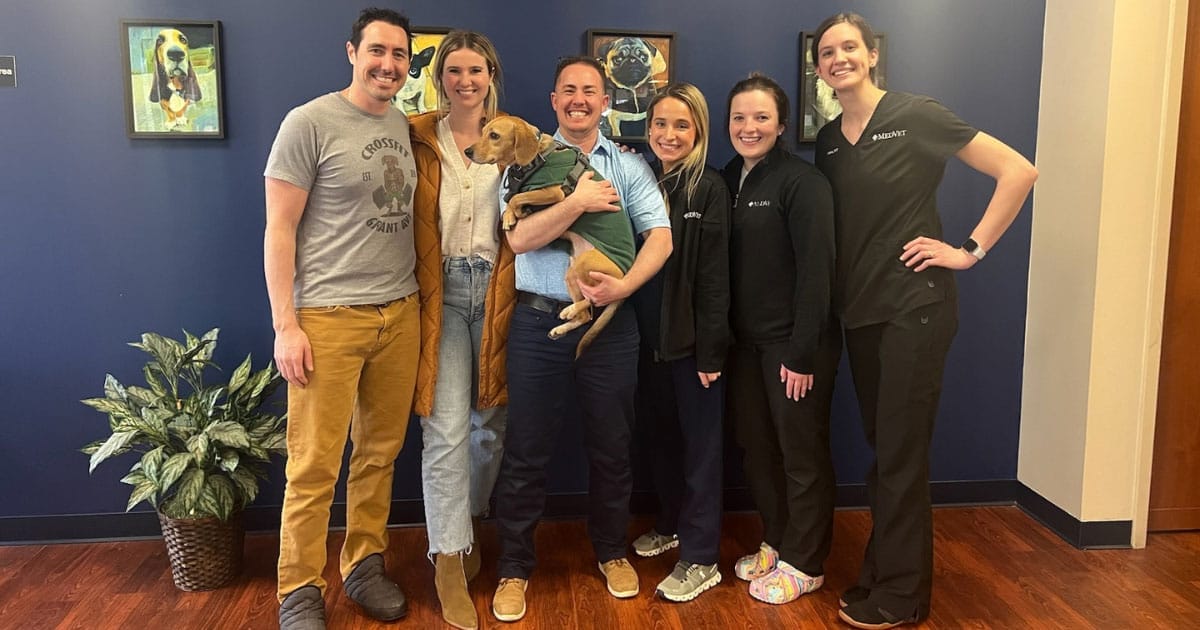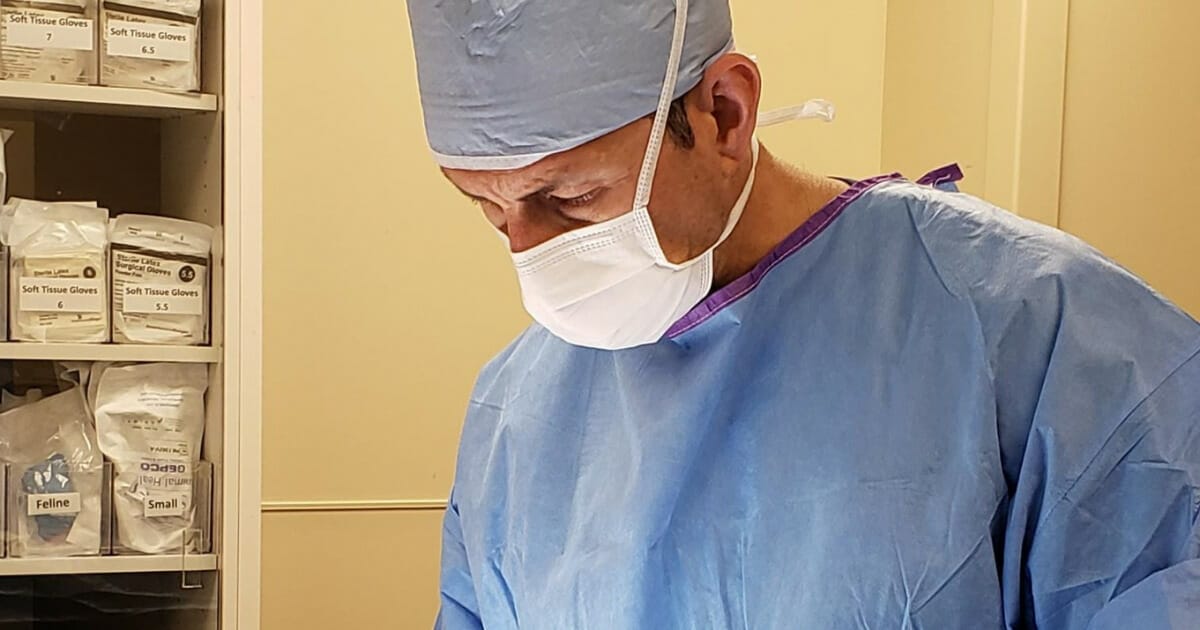Veterinary Surgeons: Surgeons for Dogs & Cats
Why Choose MedVet Surgery
Our surgery doctors, many of whom are board-certified, have trained extensively in all areas of small animal surgery. They are dedicated to improving the quality and length of life for pets by working with your family veterinarian to develop an individualized treatment plan for every patient. They also partner with other MedVet specialists with the goal of achieving the best possible outcomes for your pet.
Our caregivers use the most advanced therapies and procedures available for soft tissue, oncologic, and orthopedic surgeries. We also offer minimally invasive procedures, including Synovetin (a new injectable treatment for elbow osteoarthritis), laparoscopy, thoracoscopy, cystoscopy, and tracheoscopy.
Your pet will receive compassionate, expert care in our state-of-the-art facilities from a team who is consistently at the forefront of veterinary surgical care, research, and technology. This experience and expertise make us a preferred partner for many family veterinarians.
What to Expect During a Veterinary Surgery Consultation
When you schedule your appointment, our team will share information about pre-registering for your visit and how to prepare. This may include things like making sure your pet has not eaten (if fasting is necessary) or bringing a list of their medications.
During your pet’s consultation, our surgery team will review your pet’s medical records from your family veterinarian, including any previously performed laboratory tests and radiographs. We will discuss your pet’s health history with you and do a physical examination to evaluate your pet from a surgical expertise perspective.
At this point, we will discuss all next-step recommendations and treatment options with you in detail. Your pet may need advanced testing, such as a CT scan, MRI, or ultrasound. We will answer any questions you may have, such as if your pet’s surgery requires an overnight stay and post-surgical rehabilitation services like hydro and physical therapies. Our team partners with your family veterinarian to provide the best treatment options for your pet.
Surgery Services
- Abdominal tumor removal
- Adrenal, thyroid, and other endocrine tumor removals
- Amputation including hemipelvectomies
- Brain tumor removal
- Cytoreductive surgery for invasive tumors
- Facial reconstruction after oral tumor removal
- Feeding tube placement
- Heart and lung tumor removal
- Limb-sparing surgery for primary bone tumors
- Mammary gland tumor removal
- Perianal and rectal tumor removal
- Peripheral nerve tumors
- Skin reconstruction after tumor removal
- Spinal tumor removal
- Thoracic wall reconstruction
- Arthroscopic surgery for diagnosis and repair of joint injuries and disease including OCD lesions
- Bone tumor surgery (including limb-sparing surgery)
- Complete orthopedic examinations (diagnosis of causes of lameness and pain)
- Comprehensive treatment of cranial cruciate ligament rupture (suture-based repairs of all types, tibial plateau leveling osteotomy [TPLO], CORA-based leveling osteotomies [CBLO])
- Fluoroscopic guidance for the minimally invasive repair of certain types of fractures
- Fracture repair of all types using the most sophisticated techniques and implants available
- Hip dysplasia and hip osteoarthritis surgery (total hip replacement, double pelvic osteotomy [DPO], femoral head osteotomy [FHO], and juvenile pubic symphysiodesis [JPS])
- Joint dislocation repair
- Limb deformity corrective surgery
- Nonsurgical management of arthritis, including stem cell therapy
- Patella luxation (dislocation) correction
- Abdominal surgery for conditions of the spleen, liver, pancreas, gastrointestinal tract, adrenals, hernias of the abdominal wall, and colorectal organs
- Cardiothoracic surgery including procedures for diseases of the heart, lungs, trachea, chest wall, diaphragm, and esophagus
- Colorectal/perianal/perineal surgery including diseases of the anal sacs and rectum, and perineal hernia repair
- Ear, nose, and throat surgery including surgeries for brachycephalic syndrome, tracheal collapse, laryngeal paralysis, end-stage ear canal disease (otitis externa), and ear polyps
- Endocrine surgery for diseases of the adrenal, thyroid, and parathyroid glands
- Gastrointestinal surgery for conditions of the esophagus, stomach, intestines, and colon; common examples include foreign body removal and gastric dilatation-volvulus (GDV) correction
- Hepatobiliary surgery for diseases of the liver and gallbladder including portosystemic shunt repair and gallbladder removal/repair
- Minimally invasive surgery employing laparoscopy, thoracoscopy, cystoscopy, and tracheoscopy for common conditions such as gastropexy, bladder stone removal, and tracheal stenting
- Urogenital surgery for conditions of the kidney, ureters, bladder and urethra, and genital organs
Not all services are available in every hospital. Contact your local MedVet for services for that location.
Surgery Resources
View All Surgery Resources
Critical Care, Emergency Medicine, Neurology & Neurosurgery, Rehabilitation, Surgery
When Playtime Turns Tragic: A Pet’s Remarkable Road to Recovery from IVDD

Critical Care, Emergency Medicine, Neurology & Neurosurgery, Rehabilitation, Surgery
When Playtime Turns Tragic: A Pet’s Remarkable Road to Recovery from IVDD

